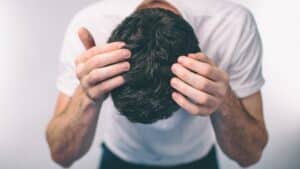Hair loss is a common concern that affects millions of people around the world. As such, there are many myths and misconceptions surrounding hair loss and its causes. In this article, we will debunk some of the most common hair loss myths in order to provide accurate information and educate individuals about this condition.
Our goal is to empower readers with knowledge and help them make informed decisions about their hair health. From genetic factors to lifestyle choices, there are various factors that can contribute to hair loss. However, not all claims about hair loss hold true.
11 Myths About Hair Loss Debunked
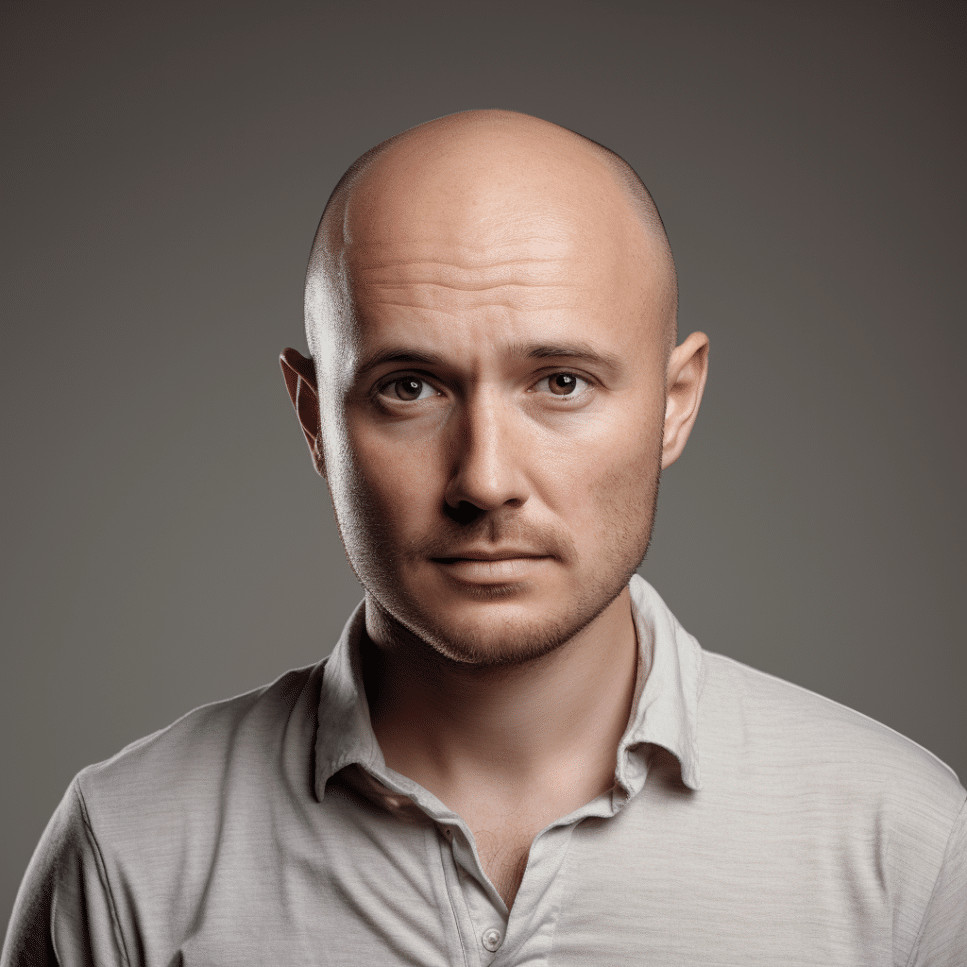
Here are the top 11 hair loss myths that we will be debunking in this article:
1. There’s Only One “Baldness Gene
One of the most common misconceptions about his pattern hair loss is that there is only one specific gene responsible for it. While research has identified a link between male pattern baldness and a specific androgen receptor gene, studies have also found nearly 290 other genetic predictors of hair loss. This means that there are multiple factors involved in the development of hair loss, rather than just one single gene.
Furthermore, experts believe that male pattern baldness may involve a combination of genetics and hormones such as dihydrotestosterone (DHT). Therefore, it’s important to understand that male pattern hair loss is not solely determined by one “baldness gene,” but rather a complex interplay of various genetic and hormonal factors.
2. Shampoo makes you lose your hair
Another common myth about hair loss is that shampooing and conditioning can cause more hair loss. However, this is not true. It’s normal to lose some hair in the shower due to natural shedding cycles of hair follicles, similar to how we lose skin cells and eyelashes.
Using conditioner also does not contribute to hair loss. In fact, it helps to nourish and strengthen the existing hair strands.
3. Everyone goes bald by 50

Many people believe that hair loss is an inevitable part of aging and that everyone will go bald by the age of 50. While it’s true that male pattern baldness can occur at any age after puberty, not every man will experience significant hair thinning or balding.
In fact, male pattern baldness may start as early as the teenage years or not even develop at all for some individuals. Hair loss is a highly individualized condition and its progression varies from person to person. There are also various treatments available that can help slow down or even halt hair loss, making it possible for many individuals to maintain a full head of hair well into their older years.
4. The Blame Game – It’s Mom’s/Dad’s Fault
Many people believe that hair loss is solely inherited from one parent, whether it’s the mother or father. However, the truth is that hair loss can be inherited from both parents as it involves a complex combination of genetic factors.
Not all individuals who have parents with pattern baldness will experience hair loss themselves. It’s also possible for individuals to inherit protective genes from other family members that may help prevent or delay hair loss. Therefore, while genetics do play a significant role in hair loss, it’s not accurate to solely blame one parent for passing down the “balding gene.”
5. Direct sunshine is bad for your hair

Another common myth is that direct sunlight can cause hair loss. While prolonged exposure to UV rays can damage and dry out your hair, it does not directly contribute to hair loss.
In fact, exposing your scalp to sunlight may actually have some benefits for hair growth. Sunlight helps the body produce Vitamin D, which is essential for maintaining healthy hair follicles. Additionally, getting enough sunlight has been linked to a reduced risk of alopecia areata, an autoimmune condition that causes patchy hair loss.
6. All Hair Loss Is Permanent
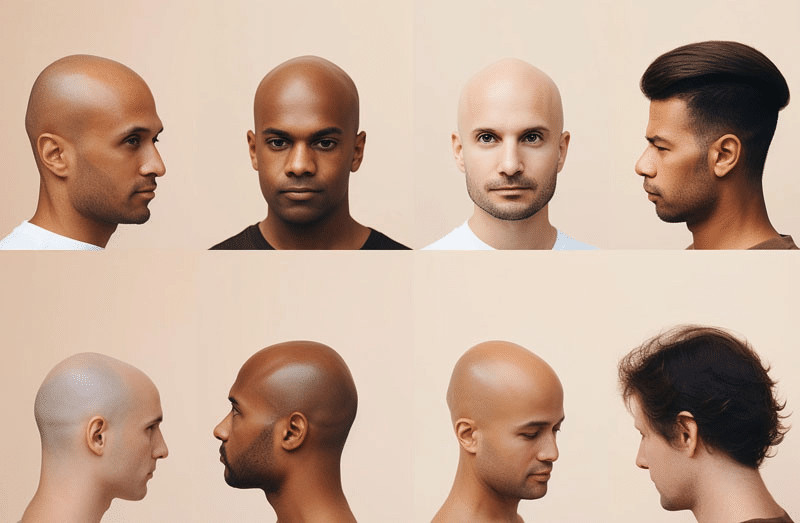
While some types of hair loss, such as male pattern baldness, may be permanent, not all hair loss is the same. There are various causes of hair loss that can either be temporary or reversible.
For example, telogen effluvium is a type of hair loss that can occur due to stress or hormonal changes and typically resolves on its own within a few months. Hair loss caused by certain medications or medical treatments may also be temporary and will grow back once the medication is stopped or treatment is completed.
It’s important to understand the root cause of your hair loss in order to determine whether it’s permanent or not. Consulting with a healthcare professional can help provide insights into your specific case and guide you towards the best course of action to prevent hair loss.
7. Stress Is Causing Your Hair Loss

While stress can contribute to some forms of hair loss, it’s not the sole cause noticeable hair loss. Research has shown that chronic stress can disrupt the normal hair growth cycle and lead to temporary shedding. However, there are also many other factors that can contribute to hair loss such as genetics, hormonal imbalances, and nutritional deficiencies.
Experiencing a stressful event may trigger telogen effluvium, but it’s typically not the only factor at play. Individuals who experience hair loss due to stress may have underlying genetic or hormonal predispositions toward hair loss.
Therefore, while managing stress levels is important for overall health and well-being, it’s not fair to blame all cases of telogen effluvium hair loss on stress alone. It’s essential to consider all potential factors and consult with a healthcare professional for proper diagnosis and treatment.
8. Hair Loss Is Only a Problem for Men

Hair loss is often associated with men, but it’s a common misconception that only men experience hair thinning or balding. In reality, women can also suffer from various forms of hair loss.
Female pattern baldness, also known as female pattern hair loss, is less common than male pattern baldness. However, patchy hair loss in women can occur due to hormonal imbalances or genetic factors. Women may also experience temporary hair loss due to events like pregnancy or stress.
Society’s beauty standards may lead women to feel more ashamed or self-conscious about their thinning hair or hairloss compared to men. This can cause women to hide their hair loss and not seek proper hair loss treatment afterwards.
9. Elevated levels of testosterone are the enemy
Testosterone is often blamed for hair loss, due to its role in male pattern baldness. However, the relationship between testosterone and female pattern hair loss is not that simple.
While high levels of testosterone can contribute to hair thinning or balding in individuals with a genetic predisposition, it’s not the sole cause hereditary hair loss. In fact, many men with high levels of testosterone do not experience any significant hair loss.
Women also produce small amounts of testosterone and can still experience hair loss. Therefore, blaming elevated levels of testosterone as the root cause of hair loss is inaccurate and oversimplifies the complex nature of this condition. Other factors such as genetics, traction alopecia, hormonal imbalances, and environmental factors should also be considered when addressing hair loss.
10. Masturbation is one of the causes of hair loss
There is a common belief that frequent masturbation can lead to excessive hair loss too. However, there is no scientific evidence to support this claim.
Masturbation does not affect testosterone levels, which is often associated with male pattern baldness. In fact, studies have shown that masturbation may actually increase testosterone levels temporarily.
Hair loss can occur due to various factors such as genetics, hormonal imbalances, and stress – none of which are directly related to masturbation. Therefore, blaming masturbation as the cause of hair loss is unfounded and perpetuates harmful myths about sexuality and health.
11. Vitamins can stop hair loss or reverse a receding hairline

While certain vitamins and minerals are essential for maintaining healthy hair, there is no one magic pill that can stop hair loss. Factors such as genetics, hormonal imbalances, and medical conditions play a significant role in hair health.
However, adequate intake of nutrients like biotin, iron, and Vitamin D can promote healthy hair growth and prevent deficiencies that may contribute to hair loss. It’s important to maintain a balanced, healthy diet, and consult with a healthcare professional before taking any birth control pills and supplements for hair loss.
Additionally, some topical solutions containing vitamins or other ingredients may also help improve the appearance of thinning hair. But it’s important to note that these products do not stop or reverse the underlying cause of hair loss.
So Why Am I Losing Hair?
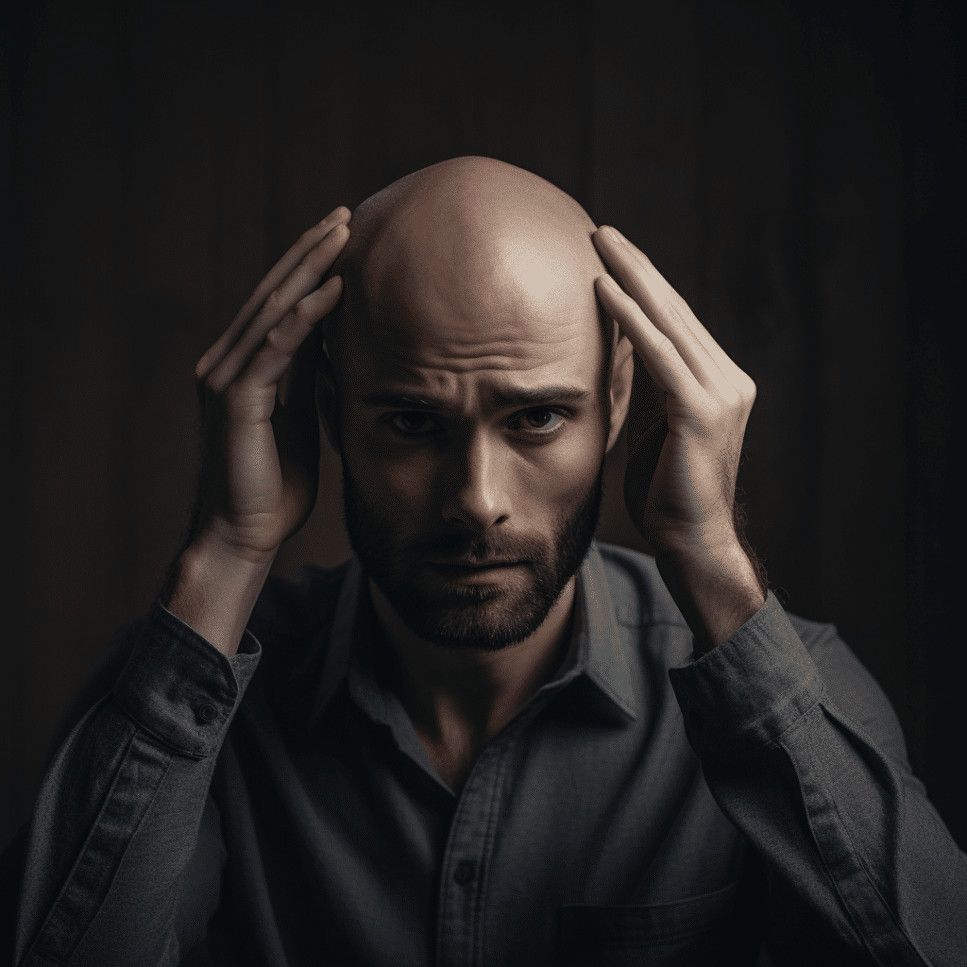
Hair and sudden hair loss that can be a distressing experience for both men and women. It’s natural to wonder why this is happening and what you can do to stop it. The truth is, there are many factors that can contribute to hair loss, and it’s not always easy to pinpoint the exact cause.
One of the most common factors is genetics. If your family members have experienced hair loss, you may be more likely to develop it as well. Hormonal imbalances can also play a role in hair loss, particularly in cases of male or female pattern baldness.
Medical conditions such as thyroid disorders, alopecia areata, and scalp infections can also lead to temporary or permanent hair loss. External factors like stress, diet, and hair care practices can also contribute to hair loss. Poor nutrition or crash diets can result in nutrient deficiencies that affect hair growth. Likewise, harsh chemicals or excessive heat styling can damage the hair follicles and lead to breakage or thinning.
Symptoms of Hair Loss

Hair loss can manifest in various ways, depending on the underlying cause. Some common symptoms of hair loss include:
Thinning of hair on the scalp
Visible patches or bald spots on the scalp
Excessive shedding of hair during brushing or showering
Receding hairline in men
Widening part line in women
Changes in texture or appearance of hair (dull, dry, brittle)
It’s important to pay attention to these symptoms and consult with a healthcare professional if you notice any significant changes in your hair. Early intervention can help prevent further hair loss and promote regrowth.
Contact Best Hair Transplant for Treatment Options
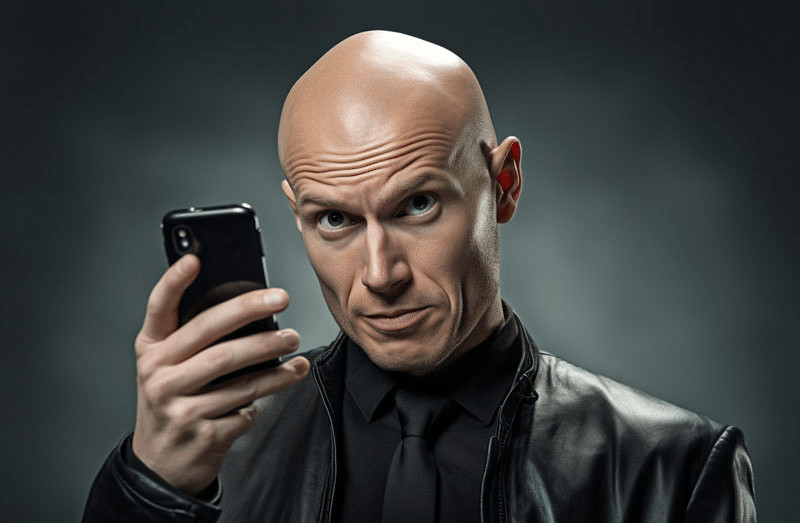
At Best Hair Transplant, we understand the emotional toll that hair loss can take on individuals. We are dedicated to providing our patients with a safe and comfortable environment as they embark on their hair restoration journey. Our team of friendly and responsive staff members is always available to answer any questions or concerns via phone or email.
Each patient’s hair loss problem is unique, which is why we offer personalized treatment plans tailored to individual needs. We offer various types of hair transplants, including FUE for both men and women. Our state-of-the-art procedures utilize innovative techniques to combat hair loss and provide lasting results.
With affordable pricing and a commitment to delivering quality, value, safety, and results for our patients, it’s no wonder that Best Hair Transplant is the go-to destination for hair restoration in Los Angeles. Contact us today to schedule your free consultation and see if we can help solve your type of hair loss.
FAQs
Can a bald guy regrow hair?
Hair regrowth is possible for some individuals, depending on the underlying cause of their hair loss. In cases of male pattern baldness, some lose hair that may not regrow naturally due to genetics and hormonal factors.
Is there an evolutionary reason for hair loss?
There is no clear evolutionary reason for hair loss. Some theories suggest that hair loss may have been advantageous for early humans, as it reduced the risk of parasitic infections and made grooming easier. However, there is no conclusive evidence to support this theory.
How close are we to cure baldness?
There is currently no known cure for baldness, as it can be caused by a variety of factors. However, there are treatments available that can help slow down or even reverse hair loss in some cases. These include medications, surgery, and other procedures that aim to stimulate hair growth or replace lost hair follicles.

